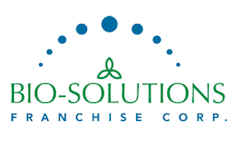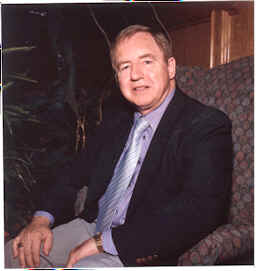Cover Story
CEOCFO Current Issue
Cover Story Archives
Private Equity Review
CEOCFO Interview Index
Future Features
Analyst Interviews
Corporate
Financials
Contact
& Ordering |
This is a printer friendly page!
Bio-Solutions Manufacturing (BSLM) has a huge potential market place, and is focused on
solving the problems of organic waste management and leveraging their 650 reference sites

Environmental
Bioremediation Products and Services
(OTC BB: BSLM)
Bio-Solutions Manufacturing, Inc.
1161 James Street
Hattiesburg, MS 394031
Phone: 601-582-4000

David S. Bennett
Chairman, President and CEO
Interview conducted by:
Lynn Fosse, Senior Editor
CEOCFOinterviews.com
August 11, 2005
BIO:
David S. Bennett is President and Chief Executive Officer of Bio-Solutions Manufacturing,
Inc. Mr. Bennett has over 25 years experience in direct sales and channel partnerships,
including IBM, Oracle and Sun Microsystems. Most recently, he has acted as senior business
development consultant for a number of specialty start-up firms. He was Vice President and
Head of North American Sales for OM Technology, Inc., a European firm. He has generated
over $50 million in software license revenues from treasury and derivative applications
from over 30 banks and major financial institutions. From 1991 through 1997, as Head of
Sales for TCAM, a North American firm specializing in order management and equities
trading, Mr. Bennett brought the firm into the top 5% of software firms in the United
States, based upon both license and service bureau revenue streams. He has both graduate
and post graduate degrees in Economics and Education from Southampton University, U.K.
Company Profile:
Bio-Solutions Manufacturing, Inc. is a technology provider of biological solutions to meet
the demand of industries seeking environmentally friendly forms of waste bioremediation.
Bioremediation is the treatment of pollutants or waste (i.e., grease or manure) by
the use of microorganisms that break down the undesirable substances into harmless,
elemental forms such as carbon dioxide and water. BSLM can trace its inception to
1991. BSLM has conducted extensive research and development. BSLM and its
predecessors have spent several million dollars to develop its product line.
BSLM is presently manufacturing third generation
biological products consisting of groups of substrate specific systems in its 25,000
square foot facility in Hattiesburg, MS. The systems developed by BSLM are marketed
primarily to municipalities for wastewater collection and treatment facilities, and to
food service facilities. BSLM has been conducting sales of its propriety products since
2003. BSLM’s management spent a significant amount of time and resources
conducting field trials and case studies with research confirming that the product line
has the ability to show a dramatic reduction in biological oxygen demand (BOD), fats, oil
and grease (FOG), and total suspended solids (TSS) while virtually eliminating source
odors. The product line effectiveness is so successful that compliance levels in
effluent discharge regulations have been easily met. (Case studies and laboratory
results are available upon request.)
CEOCFO: Mr. Bennett, what attracted you to Bio-Solutions?
Mr. Bennett: “It is a big commercial opportunity for me,
and secondly, it is doing something good for the environment.”
CEOCFO: What is
Bio-Solutions all about?
Mr. Bennett: “You can think of us as a third generation
solution to the problems of organic waste management. The first generation was pumping out
grease in restaurants and dumping it into the municipal systems, which is time consuming.
The second generation was producing enzymes and bacteria to put into the grease traps to
liquefy the grease and push it down-stream. The problem with that is if you are running a
municipal collection system, it clogs up the pipes and infrastructures. Third generation
is formulating mixtures of microbes that are menu-specific and “eat” the grease
on-site. For example, a Chinese restaurant is different from an IHOP, or a Wendy’s,
or a Pizza Hut. We have developed specific sub-strait solutions to deal with each of the
categories- you can think of them as menu-specific.”
CEOCFO: How are the
microbes grown?
Mr. Bennett: “We create special formulations and then
grow them from a vial to a flask to a huge seventy-five gallon tank. We drain the tanks,
dry out the microbe solutions, and then mix them up into seventy-five different
combinations. Following that, we deliver them to the various franchisees in a packaged and
safe-to-use manner.”
CEOCFO: What percentage
of the marketplace is using a second or third generation solution?
Mr. Bennett: “95% of the market place is still
pump-and-dump. Five percent of the market is into either second or third generation
solutions.”
CEOCFO: How do you
measure up cost-wise?
Mr. Bennett: “We are a replacement, so if you are
running a restaurant, you would be spending anywhere from $250.00 and $350.00 a month,
pumping out grease traps. We replace those costs with our cost. We deliver a complete
service. We come in, check out the environment, deliver our formulations, check the
results - from water temperature to PH content, and provide a “no-clog”
guarantee for no additional cost.”
CEOCFO: How do you get
people to make the change?
Mr. Bennett: “Education is the biggest problem. What we
have finished doing is identifying the business opportunity. We have attracted two dozen
franchisees into the business and we run a two-day training course for franchisees in
terms of how to sell, install and service. We back them up with sales support. Basically
it is telling the story to the store owner: what are your problems, how do you solve your
problems and have you considered an alternative (to pumping and dumping organic waste)
that is environmentally friendly, doesn’t cost you any more money and makes you a
good neighbor?”
CEOCFO: Where does the
environmental community come in?
Mr. Bennett: “We have not done much PR for that yet, it
is down to additional working capital, and we have been lean and mean for a long time. We
have been putting messages out on the run without looking for allies or sympathy: that
will come in the course of time.”
CEOCFO: You are new to
Bio-Solutions; what needs to be changed to move the company forward and how do you
implement your plans?
Mr. Bennett: “One way is delivering new niche market
products; another is to focus on merging in complementary acquisitions, and the third
thing is we now have over 600 sites that are now using our products nationwide. Many of
them are reference sites for multiple chains. One of our challenges is to present that at
the corporate level, and we see those three activities as being the key elements to growth
in the future.”
CEOCFO: How are you
going to accomplish that?
Mr. Bennett: “We just brought on Dr. C.A. Reddy, Ph.D.,
he is a member of our technical advisory board and he is a world famous and well-known
microbiologist. He is assisting us in terms of making sure that we grow the right
formulations in a sterile environment and creating a variety of niche products. As far as
the growth plans are concerned, we bought in 40 potential franchisees and trained them. As
a result, we recently signed some more franchisees and we have over 25 right now. We
developed a range of new products including materials to clean boats. We have developed a
fast-drying carpet cleaner and that is helpful to the casino industry. We have some
success stories in Las Vegas. We are coming up with a sub-franchise called ECOSAFE, which
clears up oil and grease spills on driveways so that a restaurant or hotel or even a
drive-thru bank can have not only a clean interior but a clean exterior as well.”
CEOCFO: How are you able
to fund all of this?
Mr. Bennett: “We are looking to raise funding through
venture capitalists but primarily through institutional investors. We have one of our
people, Lou Elwell, focusing on that task.”
CEOCFO: Will you tell us
about the competitive landscape in the Bio-remediation area?
Mr. Bennett: “There is not that much competition in
terms of what we do. There is the alternative, which is the historical pump-and-dump. That
is typically a local service and they are facing municipalities that are getting more
averse to handling their grease, and their costs are rising. If nothing else, they are
facing a challenge, which makes our lives easier in terms of offering alternatives. In
terms of bio-remediation competition, there are probably a number of second-generation
solutions out there such as Rid-X and Eco-Labs, where they have a very strong presence
either in the residential market or in the total supplies market. They are not
particularly successful in terms of handling the complexities of a grease trap environment
or a special need like varnished wood or fast drying requirements and that is where we
have our niches.”
CEOCFO: Are you sticking
with the United States now?
Mr. Bennett: “Right now we are. There is a lot of
interest overseas, particularly in Europe and in Asia. We are interested in overseas but
that is not a priority now; it is a couple years away.”
CEOCFO: Why should
potential investors be interested?
Mr. Bennett: “We have gone past the stage of
experimentation and R&D. We have a huge opportunity in the short and long-term to make
a difference. For example, in the restaurant market place alone, there are over a million
establishments each paying around $2½ to $3 thousand a year in pumping-and-dumping costs.
It is a multimillion-dollar market place and that excludes all of the specialty products.
Another example would be in Manhattan where you have small interceptors and high volumes
of organic waste. We have just acquired a company to produce an automatic grease trap,
which separates solids from greasy liquids and helps us solve the problem. That opens up
about 25,000 sites in Manhattan alone. That is what we are looking to do; open huge market
places, stay focused on expanding the message and leveraging our reference sites.”
CEOCFO: What should
potential investors know about the company that they may not realize at first?
Mr. Bennett: “In round numbers, we have over 25
franchisees that are generating around two-and-a-half million in gross revenues. That does
not translate into a lot of profit right now because we are still growing fast. In terms
of future potential, there is nothing that prevents us growing more rapidly. It is a
question of using working capital wisely and leveraging our existing customers.”
CEOCFO: In closing, can
you tell us about other applications that we can look for?
Mr. Bennett: “In Manhattan we are field testing
automated grease traps that excrete feedstock for bio-diesel fuel – in other words we
get access to material suitable for fuelling truck fleets. In Mississippi, we have a
bio-soil application being field-testing on farms. We have doubled and tripled the actual
size of crops being produced through bio-remediation of the soil, which is an interesting
twist to using fertilizer, which causes nitrate run-offs and that type of thing. We have
some very interesting results in that area and it is a new marketplace to explore. It is a
question of managing the growth, hording the cash, driving the franchisee business and
expanding and leveraging our customer base.”
disclaimers
Any reproduction or further distribution of this
article without the express written consent of CEOCFOinterviews.com is prohibited.
|


